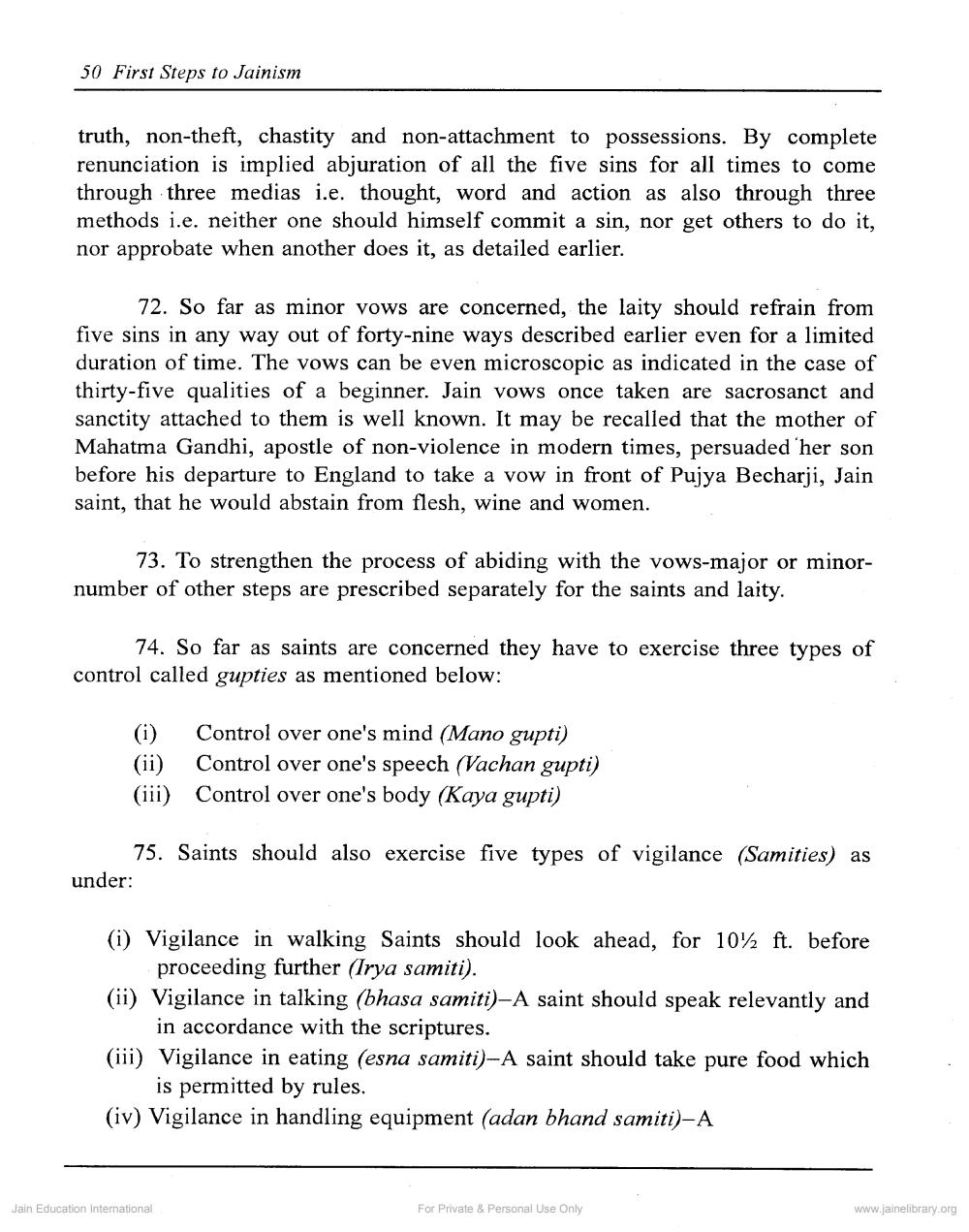________________
50 First Steps to Jainism
truth, non-theft, chastity and non-attachment to possessions. By complete renunciation is implied abjuration of all the five sins for all times to come through three medias i.e. thought, word and action as also through three methods i.e. neither one should himself commit a sin, nor get others to do it, nor approbate when another does it, as detailed earlier.
72. So far as minor vows are concerned, the laity should refrain from five sins in any way out of forty-nine ways described earlier even for a limited duration of time. The vows can be even microscopic as indicated in the case of thirty-five qualities of a beginner. Jain vows once taken are sacrosanct and sanctity attached to them is well known. It may be recalled that the mother of Mahatma Gandhi, apostle of non-violence in modern times, persuaded her son before his departure to England to take a vow in front of Pujya Becharji, Jain saint, that he would abstain from flesh, wine and women.
73. To strengthen the process of abiding with the vows-major or minornumber of other steps are prescribed separately for the saints and laity.
74. So far as saints are concerned they have to exercise three types of control called gupties as mentioned below:
i) (ii) (iii)
Control over one's mind (Mano gupti) Control over one's speech (Vachan gupti) Control over one's body (Kaya gupti)
75. Saints should also exercise five types of vigilance (Samities) as under:
(i) Vigilance in walking Saints should look ahead, for 10% ft. before
proceeding further (Irya samiti). (ii) Vigilance in talking (bhasa samiti)-A saint should speak relevantly and
in accordance with the scriptures. (iii) Vigilance in eating (esna samiti)-A saint should take pure food which
is permitted by rules. (iv) Vigilance in handling equipment (adan bhand samiti)-A
Jain Education International
For Private & Personal Use Only
www.jainelibrary.org




